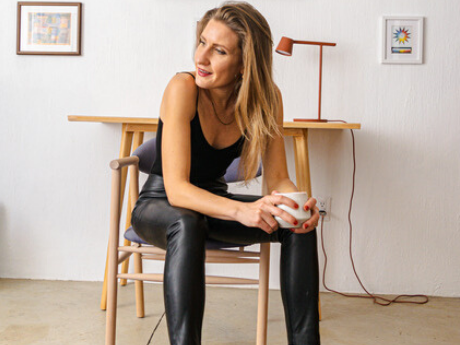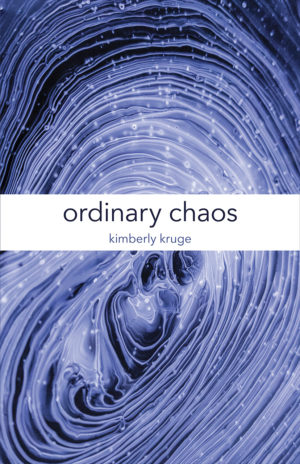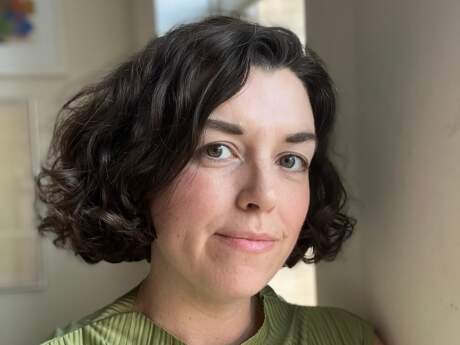In Their Own Words
Kimberly Kruge on “Direct Address”

Direct Address
Here is everywhere I’ve ever been and everywhere I’ve never been at once.
The one beside me is everyone I’ve ever known and everyone I’ve never, too.
The howl from the next apartment is every howl across history and it is also not that.
It is no secret we create reality. The storm settling over the city where I am now is
the storm settling over my past haunts, is the storm at a particular longitude and latitude
on the plane of my thoughts; it is a death wish. Observe the way trees flip
their shamed and pallid leaves up to the sky of the mind, which is just the pre-storm color I like.
How terrible will the storm be? How big the wave? It is no secret we create the sea. Swim
with me while there’s still time. It is no secret we create each other. I create your golden body
emerging from the 5 o'clock surf of a good day. That’s 5 o'clock my time, not yours. I create
the wading of your reality towards my reality and the light I think yours should take when
the sun’s in its eyes. You get the idea. It is no secret we create each other. I hear your saying
everything you’ve ever said and everything you’ve never said at once. And I don’t make much of it;
no need to work too hard towards understanding. I have the gilded you and the ghost you
tucked away, exactly where I need them for when I need them. I even have variations.
It is no secret I create what you are to me. And every so often, I observe, really observe, which
is an approximation of forgetting: loosing the mind from its tether and letting the poor thing go wild,
letting the mind come to terms with its opposition to the tether, letting it try to obliterate
the tether and run amok amid the laws of nature. Now, because I desire you,
I resist calling the mind back in.
From Ordinary Chaos (Carnegie Mellon University Press, 2019). Originally published in Omniverse. Reprinted with permission of the author. All rights reserved.
On "Direct Address"
This is a love poem. This poem is an apology.
*
When I task myself to think about observation, to unpack what observing actually is, I end up down the rabbit hole, which looks something like:
If observation is seeing then it is doing so through a filter—one that is informed by the eye of the observer and all of the experience, bias, desire, etc. that makes the observer see in a certain way.
And, if observation is our mode of perceiving the world around us, then, what is reality anyways?
*
In order to write a good love poem I thought I’d have to truly see the beloved, putting my observational biases to one side. In order to write a good love poem, I was going to have to apologize for having this observational bias in the first place. I was going to have to own up to the fact that, in my mind, I held both intentionally- and unintentionally-crafted versions of my beloved—images basked in certain lights, extrapolated traits, a set of memories tweaked and trimmed.
*
I don’t think we can help ourselves from curating our observations. After all, we can’t undo the way our minds have come to be over time. The way we remember and observe might as well be an act of making metaphors around what’s really there—that is, bringing the tenor of reality into relationship with the vehicle of our perception. The way we remember a room is not necessarily the way the room really is. In reality, the light is different. In reality, the window has a different aperture. In reality, some object there, surely, is differently shaped or in a different place.
But, what is reality anyways?
And, can I love someone if it’s impossible to remove my idea of that person from the equation of seeing them?
*
When I set out to write this poem, I wanted to play with the idea of being able to let my mind loose, to free it from me and the hold of how I want my mind to observe my partner. It seemed like to be able to do this would be a selfless act of love: to see the other without also seeing me. In the urgency of a longlined poem, I wanted to make a confession and a declaration of love; I wanted to get down into writing the idea that, if I could, I would perceive the beloved in another way—in a way less driven by what I desired to see.



